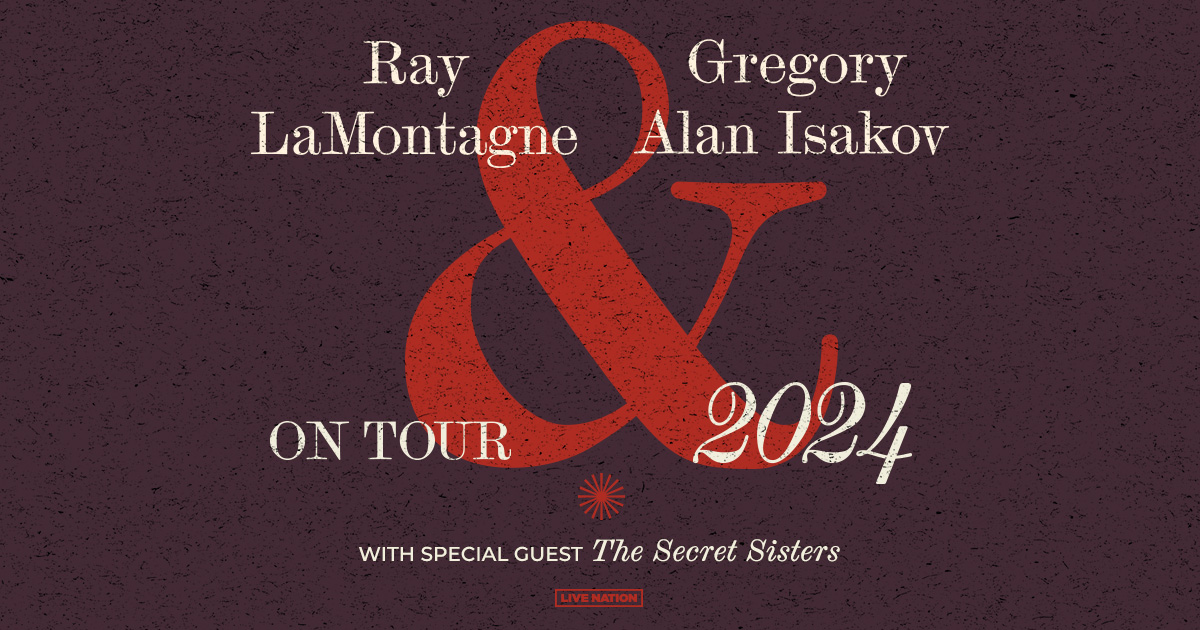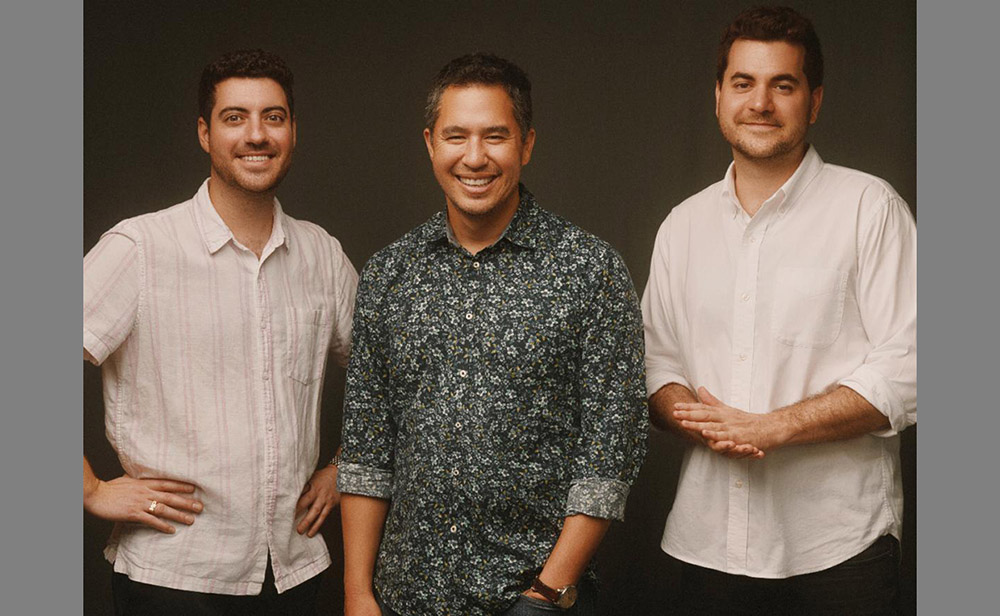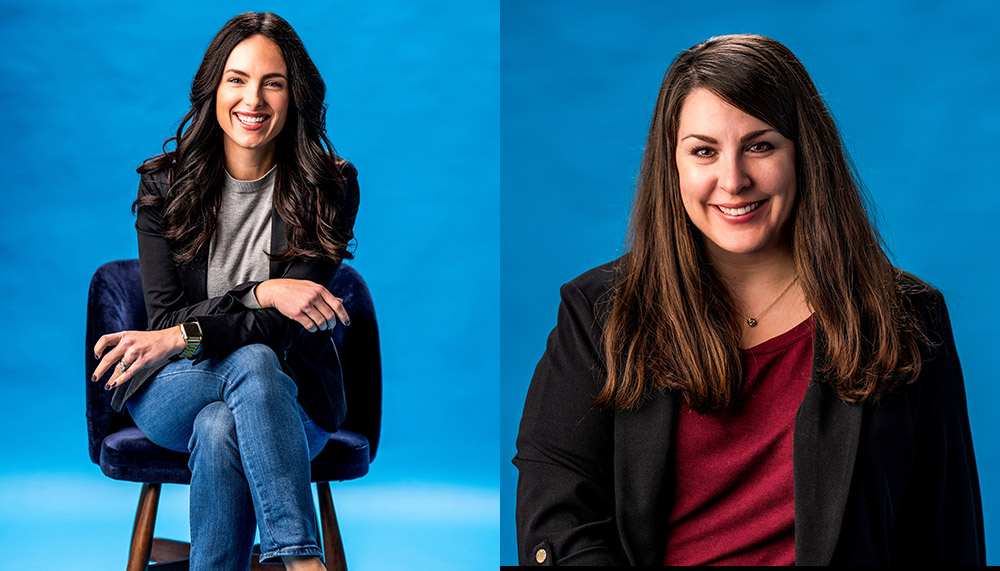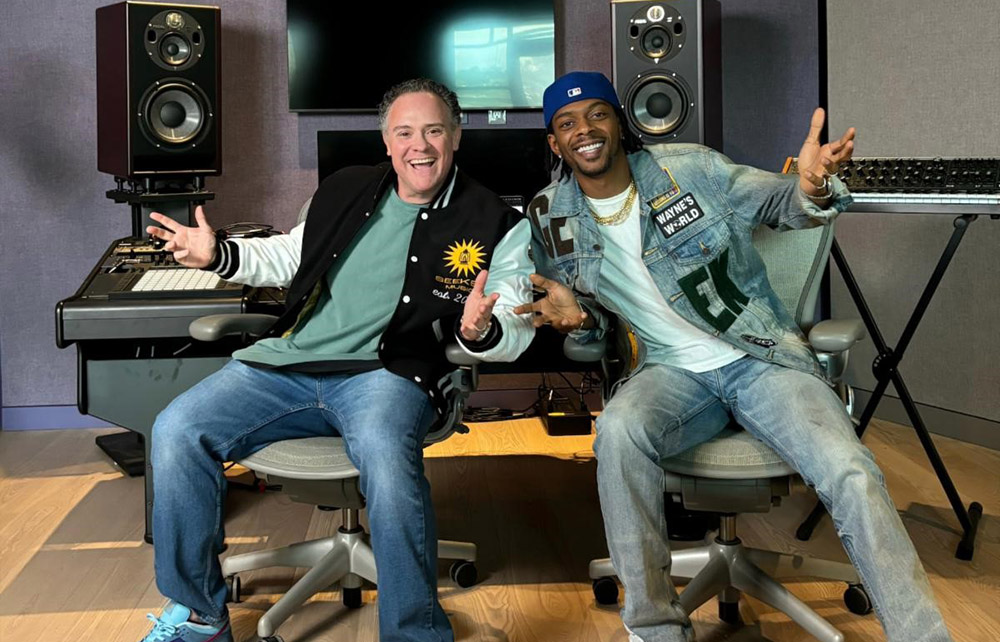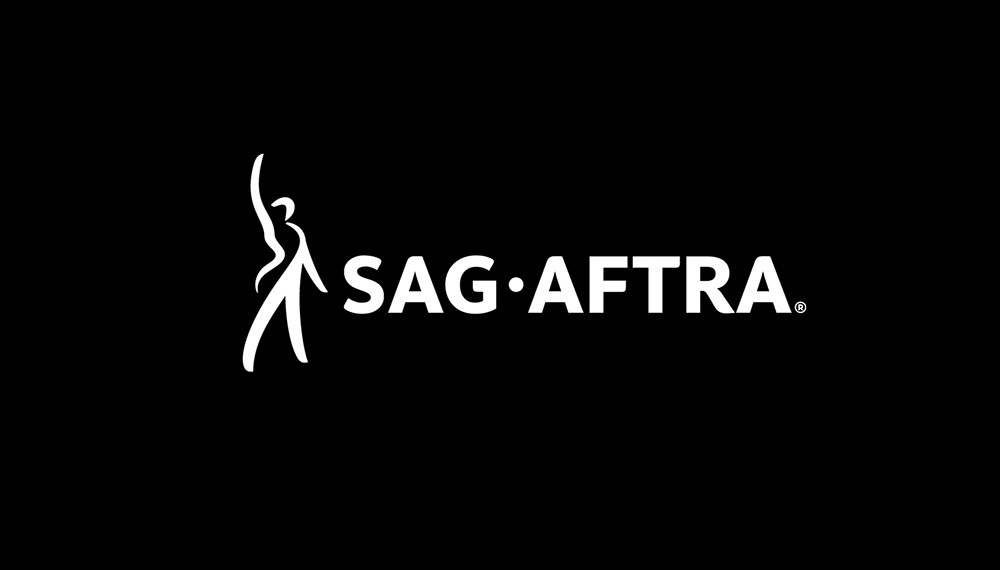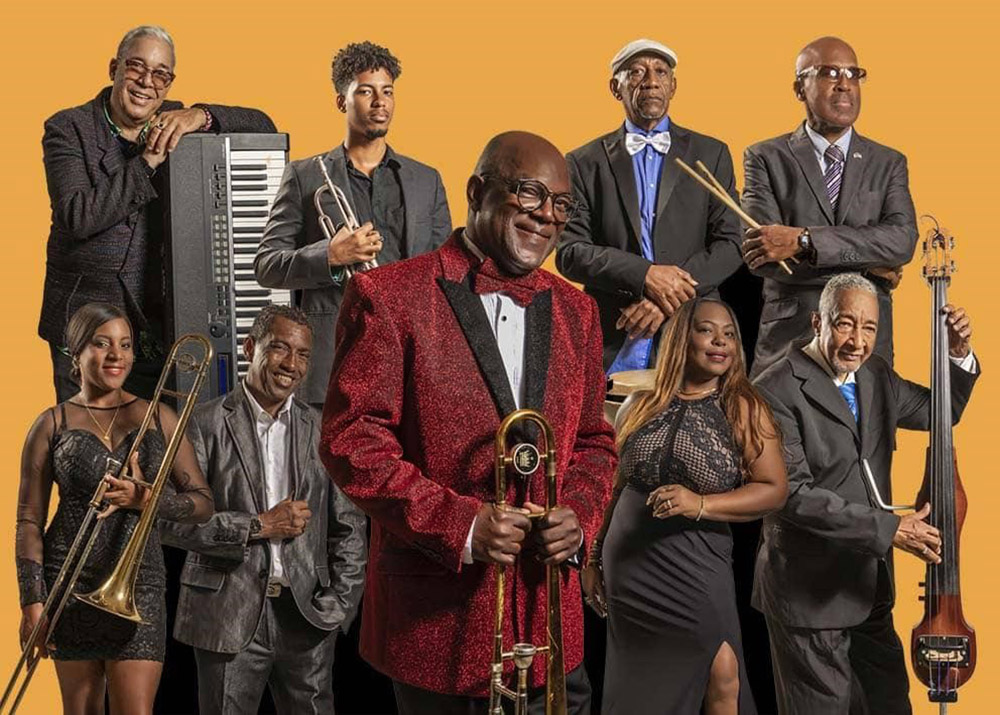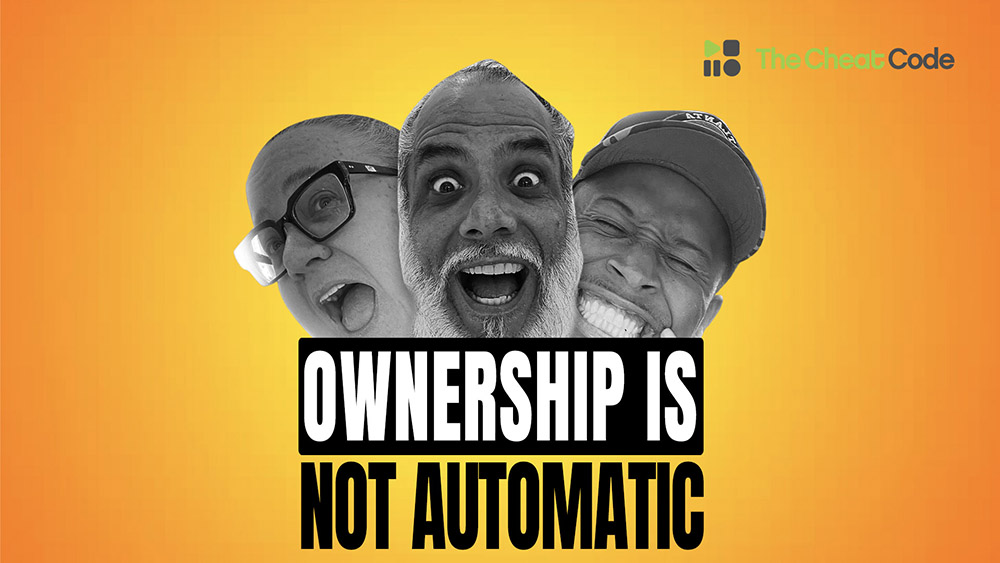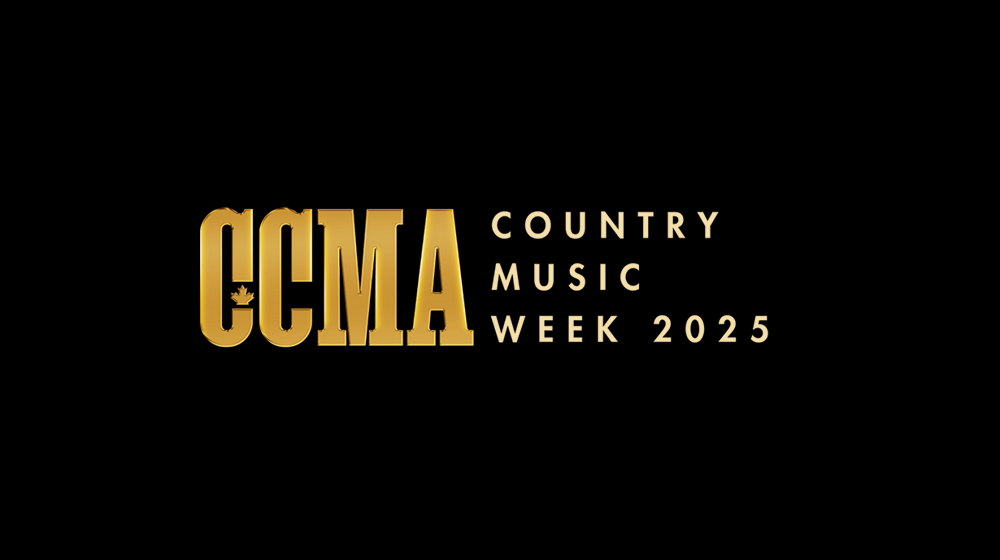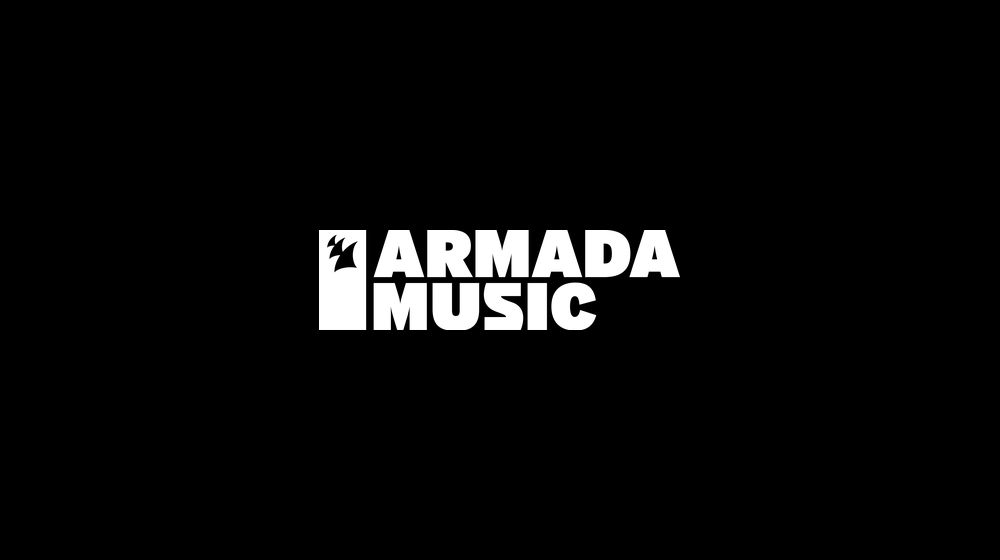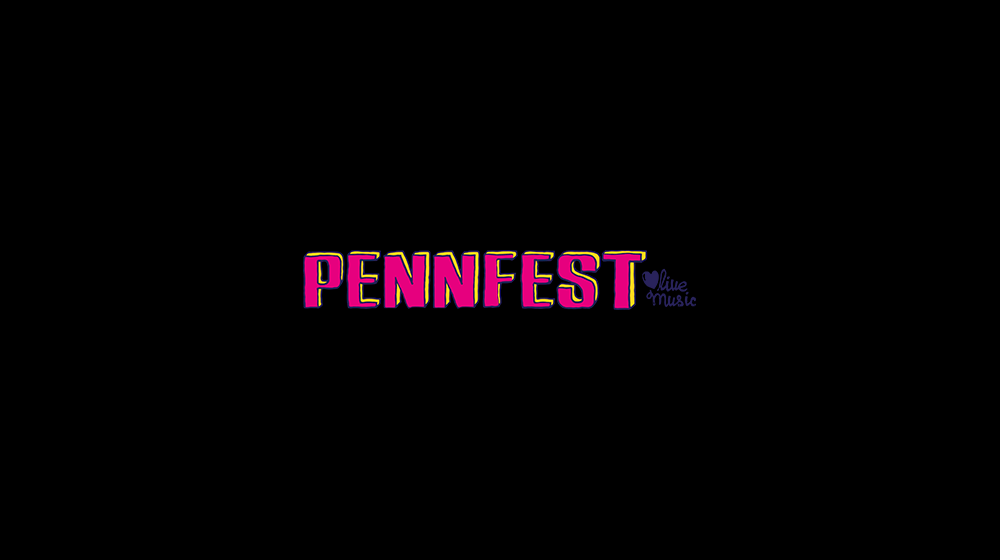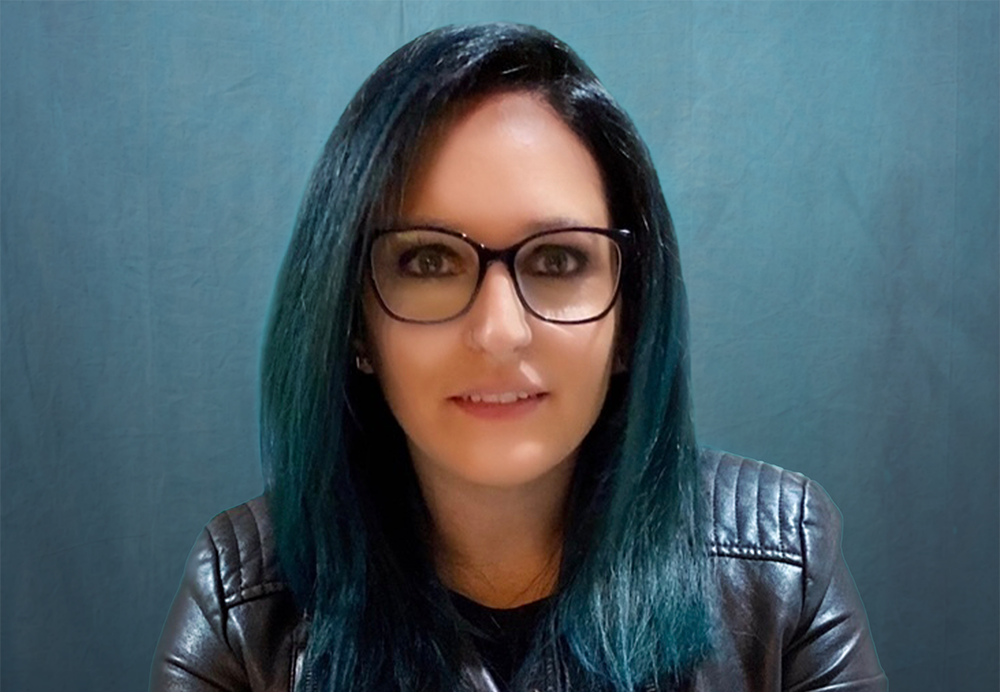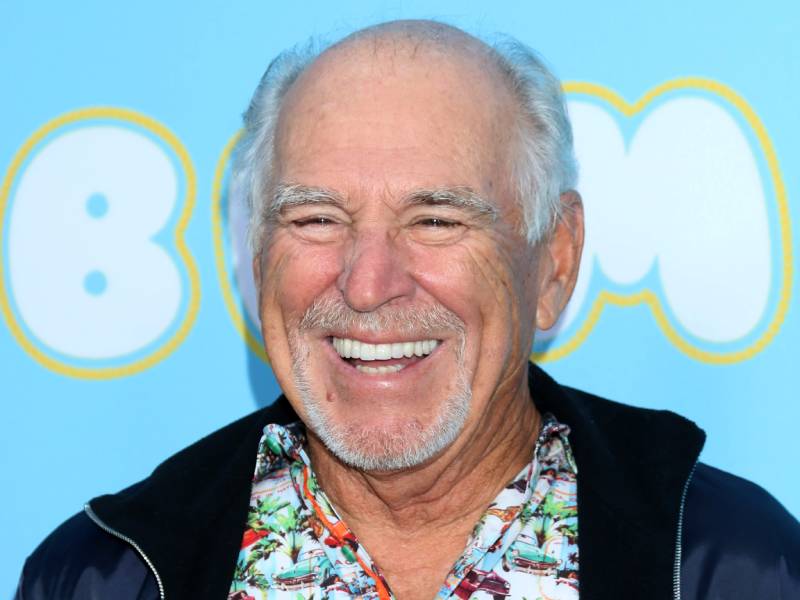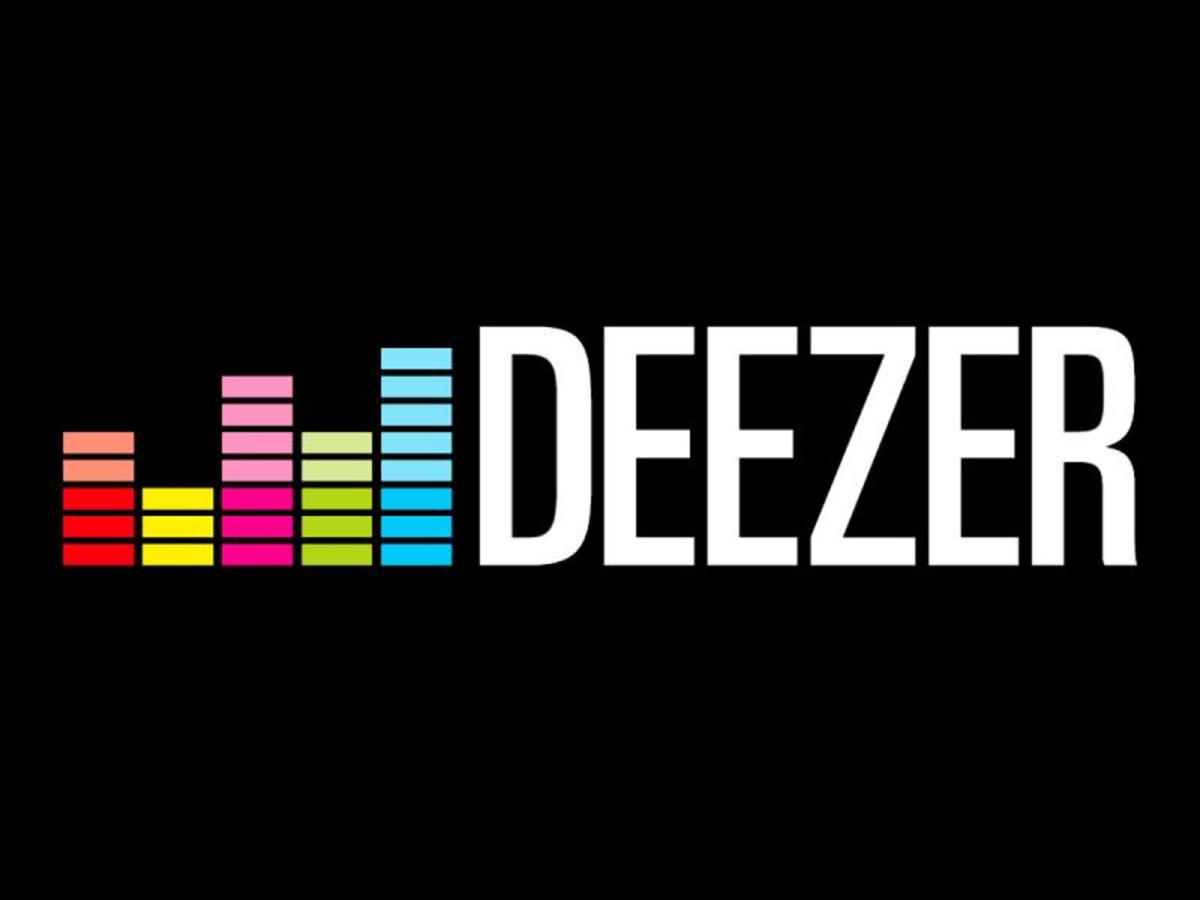
Hilary Rosen recently spoke at the National Association of Recording Merchandisers Annual Convention and Trade Show. CelebrityAccess presents her speech.
I'm grateful for that lovely introduction. It's been a wonderful, amazing ride at the RIAA, and I'm extremely grateful that I have shared it with so many of you and with this organization. I think this is my 16th NARM convention. And, of course at my first, Paul Smith was a mentor and a guide. For us, he didn't just have opinions, he made law. And we were happy to follow his lead because it always took us to places of success. It's nice to have him honored here this week. There are so many good friends in this room. I just want to say special appreciation and thanks to my dear friend Pam Horovitz. Pam and I have been through a lot together. You should be proud of her. She works hard to protect and advance your interests and she does a great job.
I'm also humbled to receive the Harry Chapin Humanitarian Award. My work at the RIAA has given me the opportunity to be involved in so many important causes. I'm proud that the music industry is among the most generous, most involved and most socially conscious group of people in America today. One of my heroes, Martin Luther King, Jr., said, "Social change cannot come overnight, but we must always act as though it were a possibility the very next morning." As we meet here in Orlando, we are in the midst of so many changes — in our world and in our industry.
Our country is on edge now and probably at the brink of war. While there are certainly diverse views in the music industry about a war, I know I speak for everyone here that if diplomatic efforts fail and a war begins, we in the music community will be supporting our troops with everything at our disposal.
But our job this week and in the coming months is to stay confident and motivated to revive the fortunes in our industry. Tens and tens of thousands of people who work in this industry and all of its related businesses, and the artists and writers and musicians who create the music and of course the hundreds of millions of music fans are depending on the people in this room to embrace your energy, your talent and your determination in ways they have never been tapped before to build the music industry of the future.
I love music. I really do. It's why I took this job 17 years ago.
I'm not sure of the exact reason why the companies let me stick around so long, but maybe it has something to do with that Mark Twain saying, "Always acknowledge a fault. This will throw those in authority off their guard and give you an opportunity to commit more of them."
It seems to me that in our industry over the last few years too many of us have gone into our respective corners and not wanted to understand the view of the other side. Even when we understand the other view, we have often ignored it, hoping that our own view would ultimately prevail.
We can no longer afford that kind of thinking.
It's time to come together. Record companies and retailers, artists and songwriters and publishers, technology companies and radio, policymakers and newsmakers, and everyone in between.
We're all at a critical juncture in our relationship with music fans and now is our opportunity to put their interests first. Not ours. I firmly believe that when the music consumer is well served, so will we all be as well.
Consumers' needs from record companies have become more complicated but they start with the same basics. Fans want great music. Their perception of cost is directly related to their perception of value. They want music in more formats than we give them. They want deeper catalog more easily available. They want to know when their favorite artists have a new record coming out. They want a way to make compilations without feeling guilty or like criminals. They want us to find a way to solve our piracy problems without encroaching on – or even talking about – their personal use flexibility.
But everyone in this room knows or should know that a record company is not in control of all of these things. Many parts of the industry are required to make their desires a reality. And making progress more quickly is more important now than ever.
I firmly believe that the key to success is for all of us in the music community to speak with one voice — one passionate, articulate and unflinching voice. We're all in this boat together.
Record companies and retailers have differences, no doubt about it, but we must not lose sight of the simple fact that that which unites is far greater than that which divides. We must focus on that which unites us.
I want to give you a brief overview today of why I'm confident that the music industry is positioned to recapture growth in future years. And since piracy is near the top of everyone's mind as the variable that will either make or break that growth potential, I want to give you some detail on some of the strategies we're undertaking to address that problem.
Think about it. The challenges we have faced as an industry with Napster and its clones are in many ways unprecedented in American commercial history. There we were rockin' along, producing and selling great music and producing enough revenue to not just support everyone, but also to grow the opportunities around the world for a bigger and bigger business. Then suddenly we wake up one day and everything we have worked so hard to build is being offered to consumers for free or for a scant dollar on the street corner. Not 10 percent off. Not reduced interest rates. Not negotiated payment schedules. Our product is suddenly being offered to consumers for absolutely nothing.
Only it wasn't so sudden. It has taken a few years for it to get this bad. Yes, we all made some mistakes along the way. I think everyone agrees that the necessary changes in our business have come too slowly. Though there are many, many legitimate reasons for this, the result is the same. And now, as we are acutely feeling the impact of the epidemic of piracy that has afflicted the art and work we spend our lives nurturing.
We must act.
There are three areas of necessary focus: business strategies, public education and, targeted enforcement.
1. Business Strategies
Obviously, this isn't an area for the RIAA, but I will just point to a few areas where change has occurred and it is for the better.
Years of effort to build on-line businesses are beginning to pay off. And there is a significant role for retail in this space as well. The online offerings are really exciting, and they're getting better.
Record companies have been experimenting with pricing strategies in the stores. Significant discounts, specials and value added packaging is a constant occurrence with releases.
Singles are back and will be in a big way.
There's consensus on the need for a new format . Now if we can just avoid a format war between SACD and DVD audio!
I often hear people remark that price is key to the success of DVD Video and why can't the record companies respond accordingly. Yet for the movie studios, video release is a tertiary market — after theatrical release, after selling it to pay per view, after selling it to premium cable and after selling it to broadcast television. Then they sell the DVD in the stores to consumer.
It's worth reminding people about copyright 101. Sound recordings have never had the full panoply of rights that motion pictures do in the analog world. Therefore, in the music business, all of the investment in a new artist has been recaptured by selling the CD. That must change in the future. It's one of the reasons that we have been so adamant about realizing market rates on webcasting. The record industry is slowly moving into the era of multiple revenue streams and offerings for consumers. This transition will be beneficial for retailers because it will provide the flexibility with products and pricing that retailers have long sought.
2. Public Education
Parents and kids sometimes fail to realize that online uploading and downloading of unauthorized files is illegal and harmful to the vitality of the music community. That's why there is critical need for ongoing education campaigns.
Many in the music community, including NARM and several retailers, created and joined the MUSIC coalition, which rolled out television and radio advertising with leading artists, full page ads in major papers, Internet banner ads, a website and various other components. That coalition continues. It needs more activity. When we speak with one voice about the perils of piracy, when we sing off the same song page, we all benefit. But we need not say the exact same thing in the exact same way.
For example, Clear Channel announced last year "public service announcements" about illegal downloading to air on their radar stations. They were extremely helpful and created by the company's own talent. They didn't read verbatim from the coalition's advertisements, but they communicated a similar message in a fashion that best resonated with their audience.
I was happy to see Clear Channel participate, and not simply because of their importance within the music community, but also because they brought to the table their own resources and knowledge of their listeners to devise a message that worked.
Various voices speaking out on their own about piracy also help generate additional attention with the public, policy makers and the news media.
That's what I encourage in all of you. You can do something about illegal downloading. For years I've listened to retailers tell us, often with complaints when you felt you were being replaced, that music buyers are your customers, not ours. Well, ok then! They are yours! Now talk to them. In your words, with your creative teams and in ways that support your businesses.
You, more than me or anyone else, know your customers. You know their language, their characteristics, their likes and dislikes, what moves them and what doesn't, what sells and what doesn't. Use that knowledge, and the creative marketing talent I know you all possess, to help combat this problem.
I was encouraged to hear that the NARM merchandising Committee spoke yesterday about launching a positive pro consumer campaign in record stores. I'm all for it. Let's thanks music fans for going into stores. Let's thank them for buying and remind them of all of the reasons we know they love to buy music.
I was moved to hear John Fithian of the National Association of Theater Owners last week tell his movie theater members that movie piracy is as much their problem as it is the studios and they needed to take responsibility for addressing it. I know that many of you in this room feel the same way about music piracy. And I'm confident that you can make a difference if you get involved directly.
3. Finally, I must talk about enforcement. I want you all to have the very latest information about what is being done to fight piracy directly at the sources.
First and foremost, I believe that we should not be ashamed to protect our rights. I 'm tired of those who suggest that because sometimes someone is a music fan or a technology innovator or even, god forbid, a teenager or a student that they have a right to steal. They don't. We know too many people who suffer from the consequences of that insensitivity to buy that self-serving argument.
Where would this business be without strong laws to protect intellectual property and more specifically copyrights? I would not be here; none of us in this room would be here. Copyright are the rules of the road that encourage and ensure that creators bring forward new art every day. The right to decide how and when to reproduce, perform and distribute your works.
It may seem obvious, but it should not be overlooked. It is the guiding principle and philosophy of what the RIAA does, and the stake that retailers have in this principle is significant.
But we must be smart and thoughtful about the enforcement.
Let me touch upon a couple of ongoing enforcement efforts. We have a crack team at our anti-piracy unit. It is staffed by a capable group of investigators and lawyers who do yeoman's work combating a problem that grows more challenging each day.
Our year-end anti-piracy numbers show that we confiscated twice as many pirate CDs as last year, and 90 percent more CD-Rs . Arrests and search warrants were way up too.
As technology has evolved, so has the face of the physical piracy problem. Ten years ago, it would require $250,000 to set up a complex mass piracy operation; now someone can do it with $2,500. This has posed new challenges and we are transforming our anti-piracy strategies to reflect these changes. We have filed copyright infringement lawsuits against flea market operators who turn a blind eye to the obvious sale of pirated works on their premises. We have ramped up our efforts to crack down on retail stores who try to make a quick buck by selling pirated CDs on the side.
We're working more closely than ever with various law enforcement agencies. In New York City, we are working hand in hand with Mayor Bloomberg's office on an initiative to clean up Canal Street and a separate "padlock" program to utilize anti-nuisance laws to close down businesses where we've found repeated incidences of music piracy. We're also planning to work with Mayor Bloomberg's office to make this program a model for a national effort with the US Conference of Mayors.
In Santee Alley, outside of Los Angeles, a problematic piracy haven, we have successfully targeted dozens of vendors by researching various property records and lease agreements to identify property owners of 27 buildings or addresses where pirate product is known to be created or distributed. We then use this developed evidence for contributory copyright infringement claims, which were used against building owners and landlords.
As a result of these efforts, pirates are no longer welcome inside the premises of leased and sub-leased stores in the area.
Back in New York, in December, we scored a significant victory teaming up with the Secret Service to bust a prolific music piracy operation based in Queens, supplying pirated music up and down the East Coast: 35,000 finished CD-Rs, 10,000 DVDs, the equivalent of 421 CD-R burners and the arrest of three individuals. The largest ever seizure of equipment used to illegally burn CDs, an operation that cost the industry $90 million.
Good for the folks I represent? You bet. Just as good, if not better, for all of you. This is our bread and butter copyright enforcement effort. Every time we help law enforcement move on an operation in Queens, Los Angeles, Miami, San Antonio or Chicago — this pays dividends for everyone here.
You all know this: the pirates hocking their illegal wares on the street or at the flea market eat into legitimate sales at the record store. A counterfeit disc sold by a vendor on Canal Street for $5 is money taken directly from your pocket. These piracy peddlers who flee at the sound of a police siren undermine the legitimate marketplace that you work so hard to sustain and build.
I know many of you feel frustrated when you see a vendor on the corner selling pirated music, and so do we. It's impossible to completely route out piracy, but we need to bring it back to a measurable level. We are working as aggressively as ever, and scoring major victories, but no should believe this is easy. It's extraordinarily labor and resource intensive, but we are committing the manpower and the dollars to get the job done. Just this month, the RIAA Board of directors added several million dollars more to our budget to increase our full time presence on the street in key problems areas of north and southern California, Texas, Chicago and the border towns of the southwest.
We're also working hard to make sure that the federal government is more engaged and active in pursuing this illegal activity. Members of Congress have made it clear to the Justice Department that enforcement of intellectual property crimes is a national economic priority and we are seeing some movement that they are responding.
In addition to street piracy, we all are, of course, confronting the epidemic if of illegal downloading occurring on peer-to-peer networks on-line. The scope and breadth of this problem, along with the constituencies we need to persuade, requires multiple approaches.
No one likes to be the cop, but the role must be fulfilled. Let's be real. On-line piracy is hurting not only artists but also the entire workforce whose jobs depend upon their success. Bottom line: if the people who create and produce the music can't make a return on investment both in terms of money and energy, then online services and all the new technology will never reach their full potential.
One point I would like to briefly address in this debate is this notion that our enforcement efforts compromise a consumer's ability to make "fair use" copies of their music. It's a red herring raised by some piracy apologists. Don't buy into this. I want to explore this for a moment because the dog you have in this fight might not be immediately apparent.
The argument is that somehow the record companies seek to encroach upon a consumer's ability to make a personal copy of music. Nonsense. We have always been supportive of the ability of consumers to copy a CD for the gym or for their car. More power to the music fan. The problem is with the student who burns 100 copies for his friends in the dorm or makes available hundreds of files for uploading onto Kazaa.
Consumers currently enjoy the ability to make personal copies and it makes no sense to legislate in this area. Does anyone in this room really believe we need to find more ways for people to copy and distribute music? It is pretty simple and straightforward now! Legislating where it's not needed and possibly creating new loopholes for people to abuse is not in the interest of record labels or retailers.
There are several strategies for on-line piracy. Record companies have been engaging in "self-help". For instance, spoofing has demonstrated some promise for early releases. Spoofing is the practice of flooding the peer-to-peer network with bogus files titled the same as the hits. The goal is to encourage the use to give up in frustration and go to a legitimate site to get the real thing. While individual companies and not the RIAA do this, we know that it is having a positive benefit on new releases. Since 60% of sales in any given year are new releases, this is an important tool.
CD Protection technologies are another important element of "self help" strategies. While the technology is apparently not quite ready, there's promise for some protective technologies, which would offer consumers use of their music on the computer and still prevent uploading onto the Internet. While there are no specific plans to release such products into the marketplace at this time, if they are produced, record companies will need to work closely with retailers to assure that the proper consumer education and labeling takes place.
Finally, there's litigation. There are two pending court cases, which you should pay attention to in this area. The first is one we have jointly with the Motion Picture Association against Kazaa, Grokster and music City. We are expecting a ruling from the judge any day about whether we win in summary judgment or whether we have to go to trial to prove that the provider of these services are contributing to copyright infringement similar to Napster.
The second is a case against Verizon. We thought we had an agreement with the Isp's. If they help us identify the direct infringer, they won't be liable for infringement themselves.
Verizon has unfortunately turned this case into a bogus claim to protect their member's privacy rights. Well first of all, there is no right to commit a crime in private. And second and more importantly, when you are on one of these p2p systems and have opened your hard drive and its contents to the network, you have given away your own privacy. Claiming privacy after the fact is the same as if I was walking down Fifth Avenue holding up a sign and then claimed you violated my right to privacy if you read it. Users on p2p systems who want privacy should check the box that prevents your files from being shared. You will protect your privacy and conveniently enough, you will also protect yourself form breaking the law.
For those who don't, let me tell you something about the massive infringer. They're offering up hundreds of hundreds of files, often thousands for others to take. They're the 8% of the users who are feeding the rest of the system. I'm not sympathetic with their claims that they are innocent. Our survey shows that they know what they are doing are illegal. We're not after the casual downloader. But we must all recognize that there's no legitimate business without enforcement against the illegitimate offerings. We've tried to be thoughtful at the RIAA in our enforcement strategies and we will continue to be. Enforcement of copyright law and intellectual property rights and the protracted legal battles we've experienced in the recent past are probably some of the toughest aspects of this changing industry. We must unite to take a stand against massive and egregious infringers. I don't know yet what form that enforcement will be, but we seek your support for a solution. We seek your wisdom and we seek your active involvement. We need your help. Everyone in this room. We need your help.
So, in sum, I'm convinced that the music business will grow in the future primarily because of three things:
1. In every survey the results are the same – music remains incredibly important in peoples lives – across all demographics.
2. Music is uniquely positioned to grow with PC penetration and broadband access. It is the only form of entertainment that is regularly consumed simultaneously with other activities. In other words, the increasing trend for consumers to multi-task with their activities benefits music especially well. Electronic distribution through multiple types of networks and in multiple business models such as singles, compilations and subscription services will offer the consumer more choice and encourage more spending.
3. And finally music is also uniquely a portable form of entertainment – well positioned to benefit from a host of new gadgets, devices and technologies that exploit individuals desire to take their life with them wherever they go. Cd's will continue to be a significant format. And we'll have another physical format within the next year. So, whether by discs, wireless or downloads into portable devices, music can bring value to every new product of consumer interest.
Like any industry, the music business endures occasional drops in growth. But we've always bounced back because the industry's future is deeply rooted in our culture's appreciation of music as part of our daily lives. What other entertainment form can accompany you at virtually every part of your day? We will continue to expand the frontiers of consumer interaction with our products to make that future better, and I'm confident we have a roadmap to success.
I believe success is possible. You can make it possible. Don't listen to the naysayers and the carpers. It will continue to take hard work and energy and optimism. Believe in yourself and in each other. I'm not here glossing over the frustration that we are all feeling. Sometimes during times of seeming uncertainty, it's best to return to the basics. For us, that's simple strategies to give the customer what they want and stopping the bad guys as best we can.
I've been in this business for 16 years because I love music. I'm proud of what you do, and I've been profoundly grateful to be working in an industry that brings so much pleasure to so many people. There are so many people in this room who have made a difference in my career at the RIAA and I want you to know that I have been deeply appreciative of your support and your friendship. To all of you here let me just say that, while this may be my last speech at a NARM convention, I will know what you are up to because I am a music fan. And I have faith in you.



















